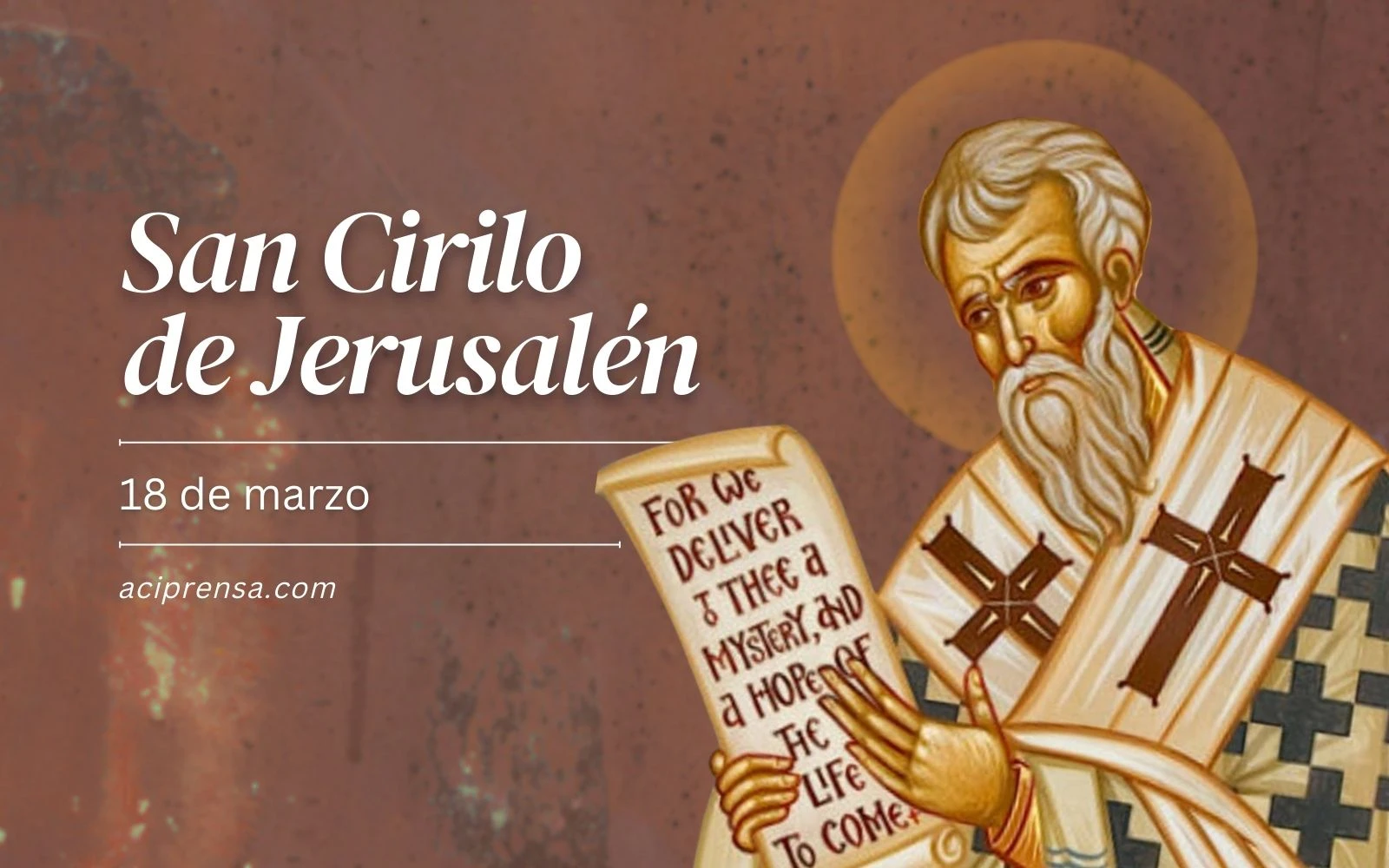Cyril was born near Jerusalem around the year 315. According to tradition, he was ordained a priest by Saint Maximus, bishop of the Holy City, who entrusted him with instructing catechumens. The saint carried out this task for many years, something that forced him to study and learn more closely about the contents of faith in the face of Scripture. Later he would be encouraged to write and make contributions that were crucial to the theology of the sacraments – particularly Baptism, Confirmation and the Eucharist.
From the year 348, Cyril would succeed Maximus in the see of Jerusalem. Thus, a period of 35 years would begin in which the saint was at the head of the Church of the ancient city. Unfortunately, of those three and a half decades he spent sixteen years in exile intermittently (three exiles in total), due to numerous confrontations with those who altered the letter and meaning of Christ’s teachings. One of those was Acacius of Caesarea, precisely who ordained him bishop, believing that Cyril would join forces with him around Arianism, with which he sympathized. Cyril, precisely because of this issue, would end up facing Acacius.
Many of the writings and homilies of Saint Cyril did not enjoy the acceptance of many powerful people due to their virtue and orthodoxy. Cyril was refining doctrinal positions inspired by the teaching established at the Council of Nicaea (AD 325), the first ecumenical council, in which he faced Arianists and pagans in the political and ecclesial field.
